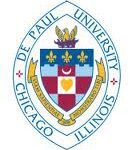What distinguishes DePaul’s sustainability efforts is the Vincentian mission.
For DePaul, the values of the sustainable learning community are not new but the logical extension of its strategic plan, Vision twenty 12released on March 4, 2006. Four objectives under the six goals explicitly articulate our ethical responsibilities and Vincentian, Catholic and urban identity:
- Objective 1e-Provide opportunities for all students to learn ethical systems and demonstrate ethical practice;
- Objective 2b-Become a university known for its students’ lifelong commitment to social justice and civic engagement;
- Objective 6a-The board, faculty and staff will assume responsibility for the institution’s Vincentian and Catholic identity; and
- Objective 6d-Externally, be well-known for civic and community engagement and a commitment to the common good as expressions of our Vincentian, Catholic and urban identity.
The White Paper on Sustainability at DePaul University released on August 31, 2009 reaffirms our values:
“The sustainable learning community requires a shared vision of integral human development that is achieved through dialogue and is marked by justice, the common good, and stewardship. This shared vision demands a heightened moral awareness and sense of social responsibility….Our Vincentian charisma requires a “bracketing in” of moral concern.”Being aware of its mandate as a higher education institution, DePaul provides education that links economic, social, cultural and personal development across the curriculum with Vincentian identity as a core value. Students as well as faculty and staff are accustomed to analyzing what is going on, discerning what we value, and asking ourselves what must be done—as Madame de Gondi asked Vincent de Paul 400 years ago. Indeed, St. Vincent de Paul created sustainable and institutionalized solutions to address it. To follow the footsteps of Vincent de Paul, we must read the signs of our time and respond to them. We, the Depaulians, need to discern what we value and think about what kind of world we want to pass on to future generation. These are our sustainable efforts being practiced for the past 112 years since its foundation in 1898.
At DePaul, efforts in attaining a holistic view toward sustainability are made not only in classrooms but also outside of classrooms. In 2009 study abroad programs were offered in more than 40 locations throughout the world. Over 700 graduates and undergraduate students participated to see what is really going on in the world and to form vision on what should be done and what we can do. Arizona State University also sees study abroad programs as effective educational opportunities for students and includes them in its sustainable education course.
Kates (2005) states that sustainable development can be viewed as social movement and the underlying principles are the evolving product of a global dialogue. The original emphasis on economic development several decades ago and environmental protection has been broadened and deepened to include human and social notions of development and alternative views of nature (anthropocentric versus ecocentric.) However, in 2010, prevailing notions of and actions for sustainability are ‘GO-green’. The human and social aspects of environmental protection, especially from a global viewpoint, are not yet widely understood. For example, the sustainable efforts taken at U.S. universities and colleges, as represented by the members of the Association for the Advancement of sustainability in Higher Education (AASHE), are directed mainly toward green initiatives.
My Google research about university/college mission statements which articulate holistic approach to sustainability found only two.
One is Bellarmine University: Its mission statement says: “The foundational Bellarmine mission statement of 1950 insisted that students must be taught to evaluate this society and to exercise their trained human powers to change it whenever necessary. Accordingly, we must continue to imbue our students with the knowledge and skills to develop solutions and opportunities—creative, serious, substantial and enduring—for a globally sustainable future….These principles, then, are the hallmarks of a Bellarmine education: Gospel values; Catholic identity; inclusive Merton spirit and sensibility. They are enacted with a commitment to excellence in all that we do; the provision of transformational educational experiences; internationalism; and global sustainability.”
The second is University of Massachusetts Dartmouth. On its website under ‘Sustainability Initiative’ UMass Dartmouth writes: “Our Mission is to assure that all graduates from UMass Dartmouth….will be environmentally literate and responsible, and work toward regional sustainability; to contribute to the international re-examination of paradigms in business, science, and technology through the establishment of educational programs that combine stellar interdisciplinary research and groundbreaking partnerships with business, non-profit groups, government agencies, and educational institutions.”
DePaul should include a statement on the front page of its website about DePaul’s Vincentian heritage, its holistic approach, and its efforts toward a globally sustainable future. If revising the Mission Statement would require a long process, adding a few sentences in the vision or goals may serve to let people know of our stance and holistic approach to sustainability.
Posted by Toyoko Sakamaki
Image: Center panel of triptych, Vincent de Paul with poor at circular table of the Lord, face shown on table; dog at lower left; original in Vincentian church, chapel of Mercy, Graz,http://stvincentimages.cdm.depaul.edu/Pictures/2.%20Paintings/Austria,%20Graz,%20Vincent%20de%20Paul%20with%20poor%20at%20table.jpg
[Reference]
Kelley, Scott. 2009. What must be done? DePaul as Sustainable Learning Community. http://works.bepress.com/scott_kelley/11
Vincentian Identity as the Core of DePaul University’s Sustainable Efforts
Tags: CM, Congregation of the Mission, dePaul (De Paul University), Environment, Sustainability, Vincentian

